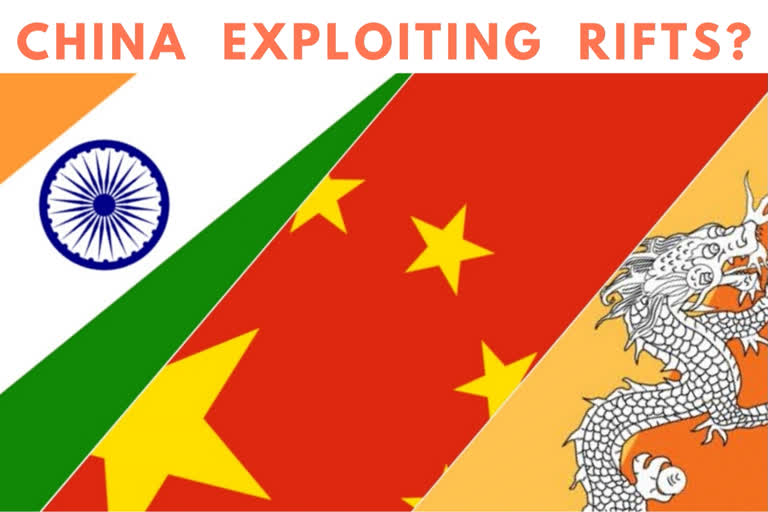New Delhi: China is continuously trying to widen the once-proximate ties between India and Bhutan which is fuelling Indian concerns that a persistent Chinese plan to encircle India by weaning away its immediate neighbours is on, says a key United States Congress panel annual report.
The 593-page-long US-China Economic and Security Review Commission's 2019 report to the US Congress, released on Thursday, says: "China's pursuit of closer ties with several other South Asian countries also fueled Indian concerns over Chinese encirclement. In 2019, Beijing continued efforts to exploit diplomatic and economic rifts between India and Bhutan, promoting bilateral trade and tourism in Bhutan at a time of ongoing concerns within the Bhutanese government over its economic dependency on India."
"China also saw investment in Bangladesh as an opportunity to extend its influence in the region. Bangladesh and China have signed deals worth $21.5 billion for power and infrastructure projects, with the most recent agreement signed in June 2019 providing Bangladesh’s power sector with loans worth $1.7 billion."
Facing a historically unprecedented threat to its globally prime position by an advancing China, the US Congress has sought several radical measures to mitigate and curb the growing influence of the Asian giant.
The suggested measures range from enacting possible laws barring Chinese companies from issuing securities on US stock exchanges if they do not comply to certain stringent conditions to keeping an eye on Chinese students, who comprise a significant portion of overseas students studying in the US, in efforts to curb China government influence in the US economy to preventing theft of technology and industrial and military espionage.
The report says: "Chinese students enrolled in foreign science, technology, engineering, and mathematics programs are treated like employees of China’s defense industrial base, with defense enterprises regularly funding their studies in return for service commitments following graduation."
Read: Naga peace accord in a few days, but will there be peace?
"There is also rising concern regarding the CCP's increasingly brazen attempts to influence and interfere with internal political processes and social freedoms in other countries. Chinese diplomats in countries including Australia, New Zealand, and Lithuania openly praise and encourage Chinese students seeking to suppress pro-Hong Kong peaceful protesters, no longer bothering to conceal their involvement in this political interference. These actions are one outgrowth of the CCP’s increasing attempts to manipulate the overseas Chinese population into serving China’s national goals."
In another finding, the report questions the extent to which China's People's Liberation Army (PLA), the world’s biggest military force, remains loyal to the CCP. There are "longstanding CCP concerns over the PLA becoming a 'nationalized' force that viewed itself as a professional, national military rather than as an instrument of the Party.”
"General Secretary Xi (Xi Jinping) - who also serves as chairman of the CMC (Central Military Commission) - has targeted a number of high-ranking generals in the anticorruption campaign, embarked on a propaganda campaign to reinvigorate PLA loyalty to the CCP, and pushed through major changes to the PLA command system."
"…whereas only one PLA officer holding the rank of major general or above was convicted of corruption between 2000 and 2011, 78 officers at this rank were either ... charged with corruption or were reportedly sidelined after allegation[s] of corruption were leveled against them" between 2012 and January 2019."
Jinping took over as CCP general secretary in 2012.
Mandated to bring out an annual report, the US-China Economic and Security Review Commission is "to monitor, investigate, and report to Congress on the national security implications of the bilateral trade and economic relationship between the United States and the People’s Republic of China."
Read: Rajnath Singh will bridge another military gap in Arunachal tomorrow



